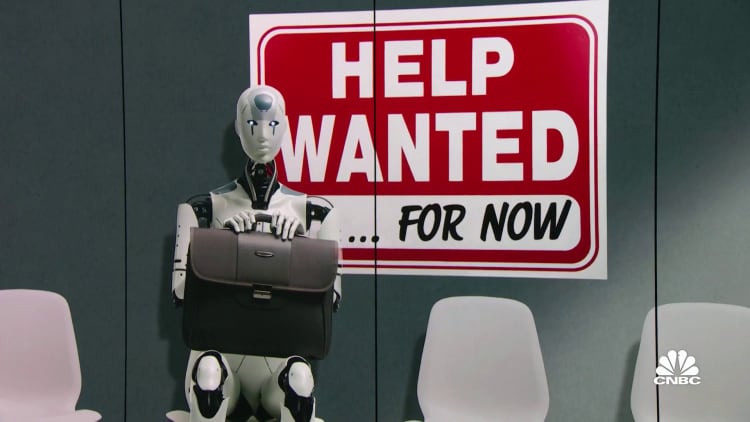Automation could reduce jobs but employment will grow in making

There’s no denying automation will eliminate certain jobs in the coming years.
But as companies adopt robots on manufacturing floors, in kitchens and on delivery routes, workers have a growing opportunity to join the ranks in helping to build and implement the technology.
Both humanoid and nonhumanoid robots are set to reduce employment in the years to come, as nearly equal amounts of companies say they’re expecting growth, worker displacement or a neutral effect due to the technology, according to the World Economic Forum’s Future of Jobs Report for 2023 forecast. The sectors most likely to adopt robotics are electronics, energy tech and utilities and consumer goods, according to the study.
The effects may differ depending on the industry.
For example, the WEF study found 60% of companies operating in the production of consumer goods and the oil and gas industry project jobs will be lost due to automation. On the other hand, 60% of companies operating in information and technology services expect jobs to be created due to robots in the next five years.
Robots in the lab at the Rosenstiel Campus in Miami.
Jose A. Iglesias | Tribune News Service | Getty Images
Robotics company Zipline is among the companies looking for employees, as it aims to add at least 100 workers. The San Francisco, California-based startup designs, builds and operates autonomous delivery drones, working with clients that range from more than 4,000 hospitals to the government of Rwanda and major brands such as Walmart, GNC, Toyota and Sweetgreen. Roles are open in positions from electrical and mechanical engineering to coding and security.
“Even in a world where a lot of startups are doing layoffs or sort of playing defense, this market is big enough and exciting enough that the plan is really being very aggressive over the coming couple years,” Zipline CEO Keller Rinaudo Cliffton said.
The current delivery ecosystem is slow, expensive and not good for the environment, Rinaudo Cliffton said. The opportunity to make it over with automation has benefits for customers, workers and the planet.
“Technology is sometimes changing the nature of jobs, but typically, it’s just dramatically increasing the productivity of any given person,” Rinaudo Cliffton said. “Before, we were using a human to do one delivery at a time driving a car one at a time to go and make deliveries. Now, we’re training that human to maintain and manage a fleet of robots. So that human can now do 50 deliveries in an hour rather than five, and that enables us to pay that human a lot more. These are jobs that people actually really want.”
The use of automation at companies large and small has two advantages, the Association for Advancing Automation argues. It reduces challenges for workers in taking away monotonous or dangerous tasks in their day-to-day roles and it keeps companies competitive and speedy in the production process. It can also help to solve an ongoing labor shortage.
“From a worker standpoint, it’s…
Read More: Automation could reduce jobs but employment will grow in making
